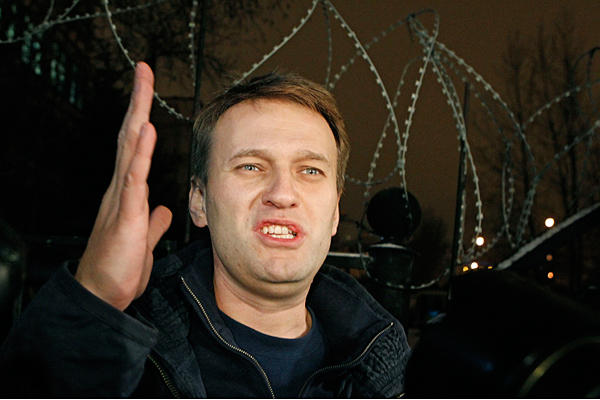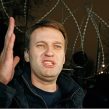
Continued Public Anti-Putin Protests in Moscow Influence Political Decision-Making
Publication: Eurasia Daily Monitor Volume: 9 Issue: 108
By:

Russia’s rulers seem confused on how to stop the continued public anti-Vladimir Putin protests in Moscow, shifting from aggressive intimidation and use of force to attempts to disorient and pacify the opposition by co-opting some of its ideas and leaders into the official fold. The growing inconsistency and unpredictability of Russian internal politics may begin to weigh not only on the investment and business climate of the world’s major oil and gas producer, but may additionally have a destabilizing effect on Moscow’s defense and foreign policy decision-making.
Reportedly, the Kremlin fears that the social base of the present middle class prodemocracy movement may in the near future grow dramatically to include mass protests by the working classes, sending Russia into a spiral of destabilization and eventual regime change. Gennady Zyuganov – the leader of the Communist party, the largest Duma opposition faction – predicted recently that in the fall massive discontent will engulf Russia, the OMON riot police will lose control of the streets and the regime will fall (Interfax, May 16). Kremlin insiders reportedly believe such a threat is a real and major danger (Kommersant-Vlast, May 28).
The ruling elite is split and has been responding incoherently, reacting to events without any clear strategic plan. When mass prodemocracy protests suddenly began in Moscow last December after the Duma elections were shamelessly rigged by the ruling United Russia (UR) party, the OMON initially used brute force. But as the protest crowds grew, the Kremlin swiftly put forward an array of seemingly democratic reforms – to restore the election of provincial governors and mayors, as well as to liberalize the registration of opposition parties and independent candidates. The concessions were reportedly put forward by the former first deputy chief of the Kremlin administration in charge of internal political control, Vladislav Surkov, who believed these political reforms could split moderate opposition leaders from hardcore radicals and help marginalize the entire movement. Surkov was soon appointed deputy prime minister, replaced in the Kremlin by Vyacheslav Volodin, who has flushed Surkov’s appointees out of the presidential administration and promoted a policy of confrontation and suppression of the emerging prodemocracy movement (RBK-Daily, May 28). A third clan of officials, reportedly led by Moscow mayor and former Kremlin chief of staff Sergei Sobyanin, advocates a soft-glove approach: to restrain from major clashes and the escalation of confrontations in big cities. Police and security service generals (the siloviki) reportedly clamor to be given clear orders as to what to do. Putin listens to all but avoids making any binding decisions (Kommersant-Vlast, May 28).
Last March, after Putin’s landslide election as president, the protest movement seemed to begin to fizzle out, and the Kremlin started treating the liberal reforms announced in December as unnecessary: media censorship continued to be as stringent as ever, state-controlled TV carried propaganda denouncing the prodemocracy movement, opposition parties were prevented from forming electoral alliances to challenge UR domination, gubernatorial candidates would be required to provide official endorsements from municipal legislators, while the municipal councils continued to be dominated by the UR (Kommersant, June 7). There will be no federal elections to the Duma for five years, and Putin is not up for reelection until 2018. The protest movement seemed marginalized and Russia ripe for another long spell of authoritarian stability. Then suddenly, on May 6, when neither opposition leaders nor the authorities expected it, tens of thousands of protesters gathered for a massive demonstration in downtown Moscow that ended in violent clashes, provoked by the OMON. A series of sit-ins and protest “promenades” in the center of Moscow by “white ribbon” demonstrators continued for weeks after May 6. Despite the arrest for 15 days of the two most popular protest leaders – leftist Sergei Udaltsov and anticorruption campaigner Alexei Navalny – the self-organized protests continued unabated (Kommersant-Vlast, May 28).
In an attempt to intimidate citizens from attending the next major protest march and rally planned for June 12 (the national Russia Day holiday), the UR has rushed through draconian legislation that will increase some 500-fold fines, which the corrupt Russian courts may impose on anti-government demonstrators or anyone gathering in the streets for any reason the authorities disapprove of (EDM, May 17). This week, on June 6, the opposition Communists and Just Russia legislators attempted an unsuccessful filibuster (the first in Russia’s history) to prevent the final passing of the oppressive legislation in the Duma by fielding hundreds of amendments. The Duma session lasted some 11 hours, but the UR, with its slim but workable parliamentary majority, managed to pass the law. The Federation Council upper house, which consists of unelected Kremlin-appointed members, passed the bill in less that an hour and it is now awaiting Putin’s signature to become law (Kommersant, June 6).
Mikhail Fyodorov, Putin’s advisor and chairman of the presidential human rights advisory council, wrote an official letter, asking the Duma and the Federation Council to postpone the passing of the oppressive law “because it violates the constitution, Russian international human rights obligations and Russian criminal and civilian codes.” The draconian legislation, according to Fyodorov, was rushed though in violation of existing regulations and, if implemented, “may lead to mass human rights violations and a serious public confrontation” (Interfax, June 4). The UR ignored Fyodorov’s letter, while the Federation Council claimed it never received it. Fyodorov appealed to Putin to veto the bill, but the chances of this are slim (Kommersant, June 7).
Navalny accused the Moscow authorities of refusing to allow protesters the right to have a march or rally anywhere in downtown Moscow on June 12, thus provoking a confrontation. Navalny further alleged that the UR obtained a Duma majority through massive vote rigging and assured that the opposition is fully united and ready to demonstrate on June 12, no matter what (https://navalny.livejournal.com/, June 6).
The UR lost the December 4 elections. It received a Duma majority through theft and does not have a public mandate to impose its will on the nation. The ruling party seems to lack any legal argument, but blunt force. On June 6, some ten liberal Yabloko party activists, led by party leader Sergei Mitrokhin, were walking in a public square near the Kremlin and the Duma in white T-shirts with a logo: “Legislation on rallies leads to a fascist state.” The police demanded they take the shirts off, and after a refusal to strip naked in a public place, they were arrested (Kommersant, June 7). It seems Putin has decided, for better or worse, to smash the protests, instead of continuing to wait for them to fizzle out.




